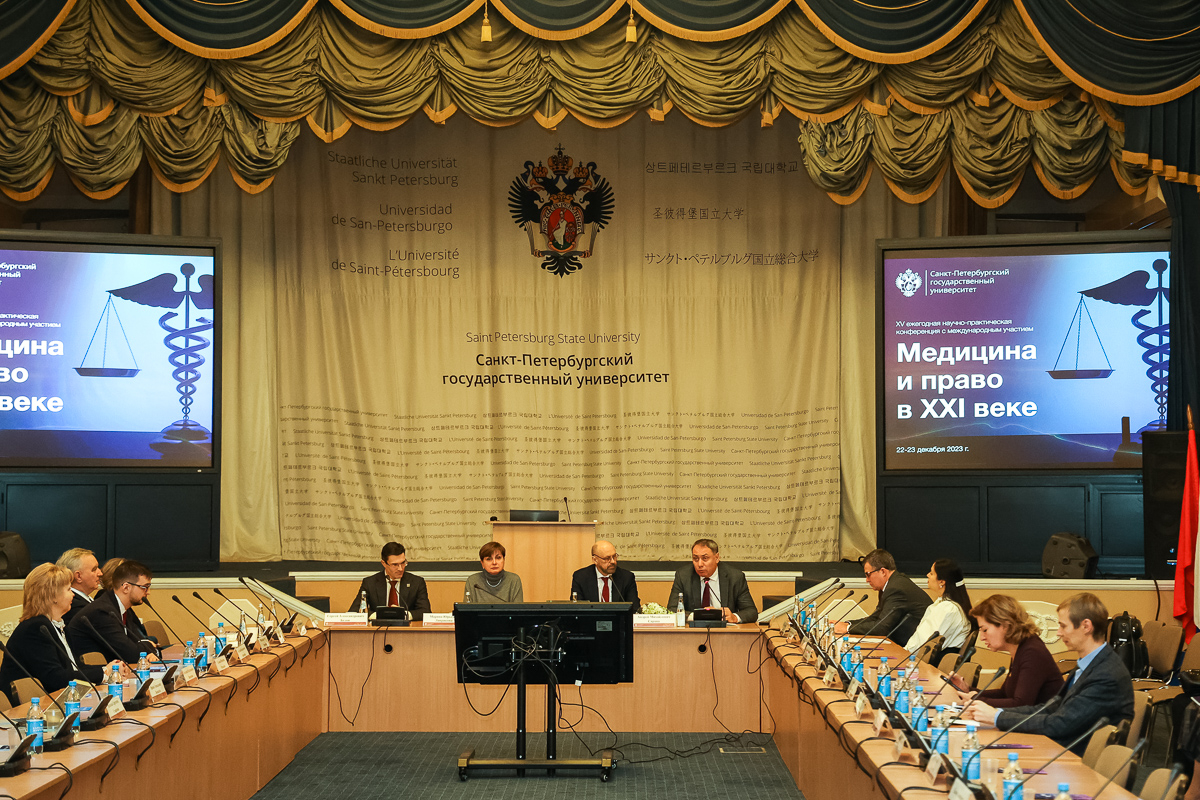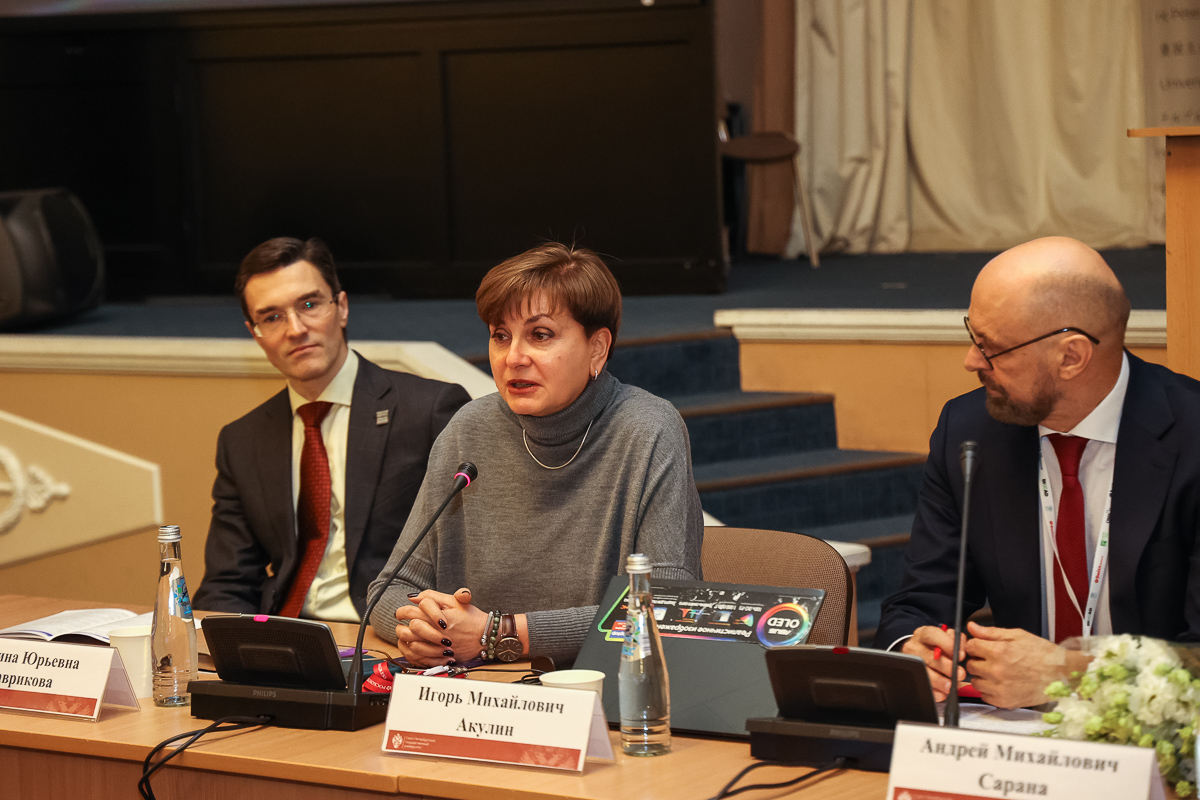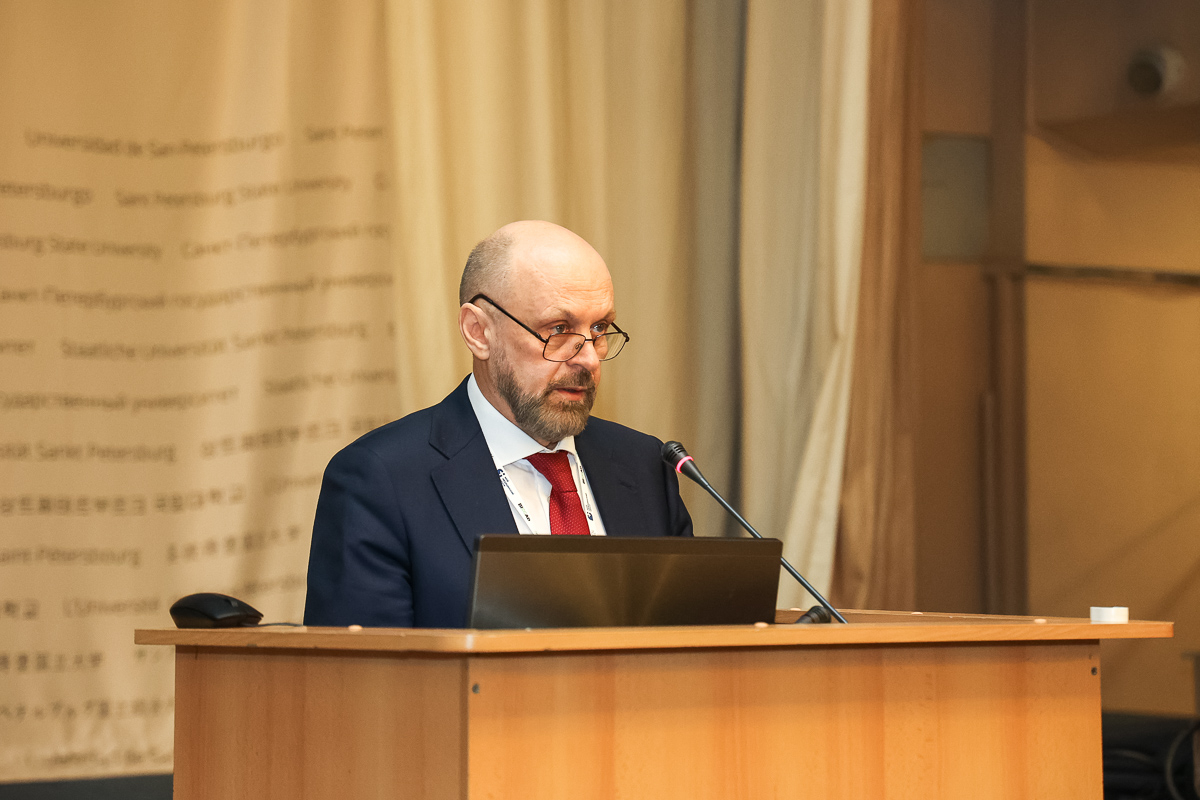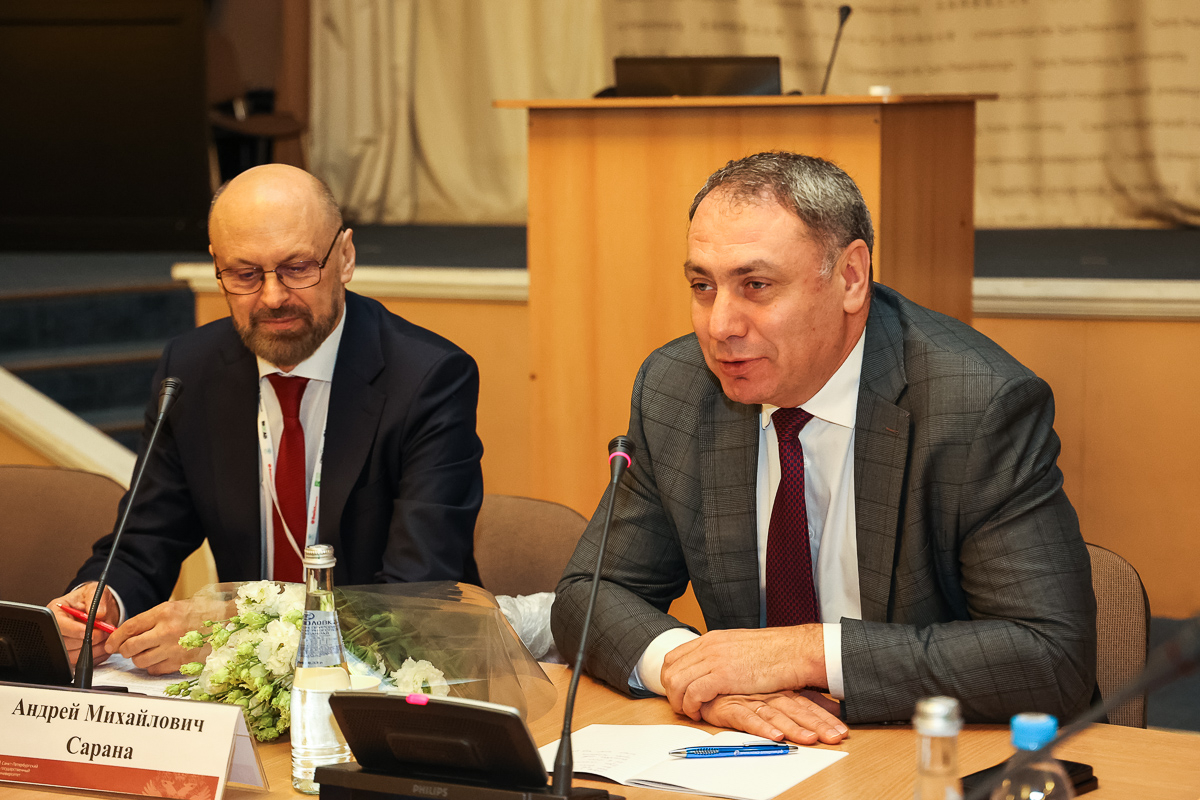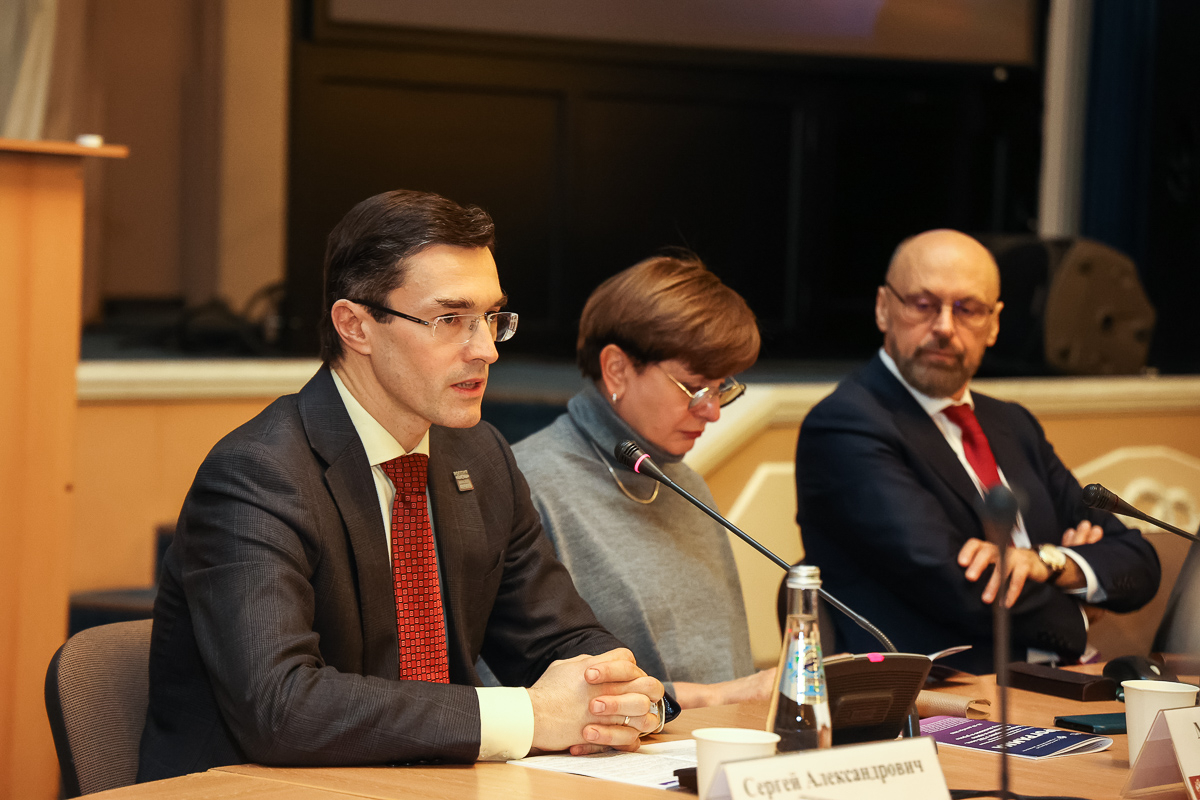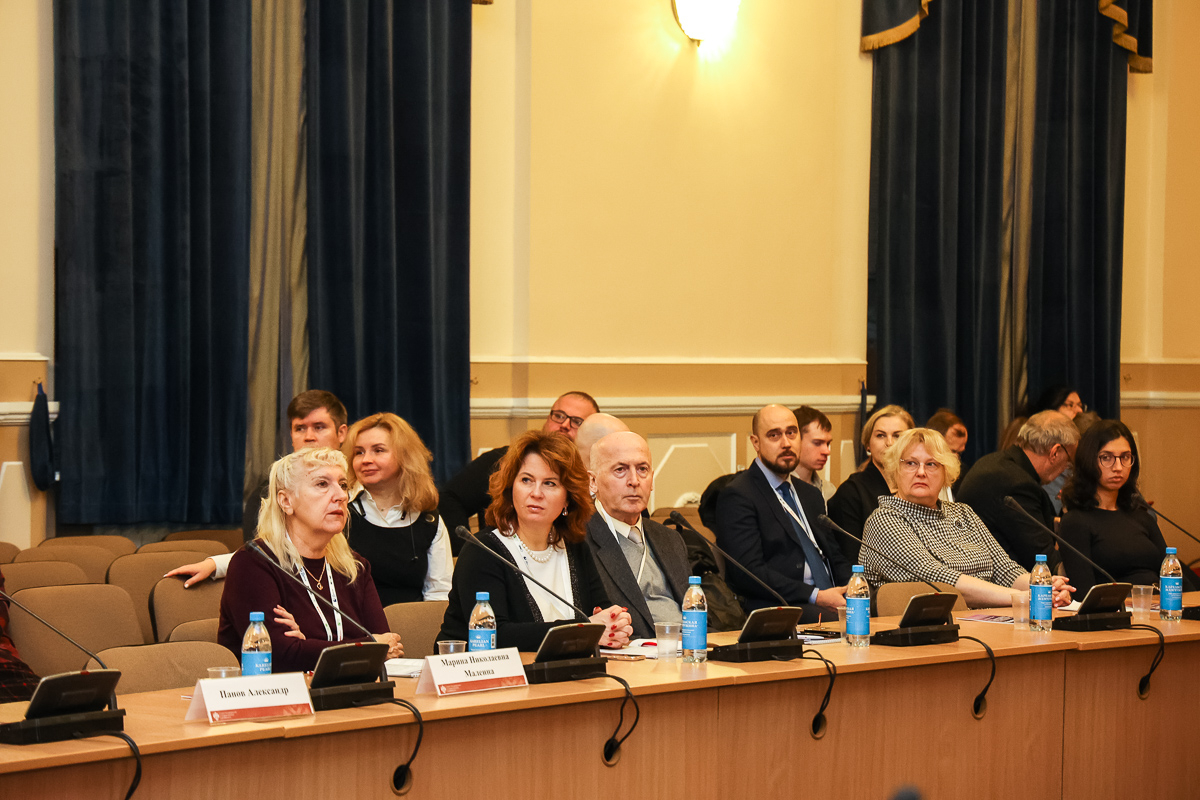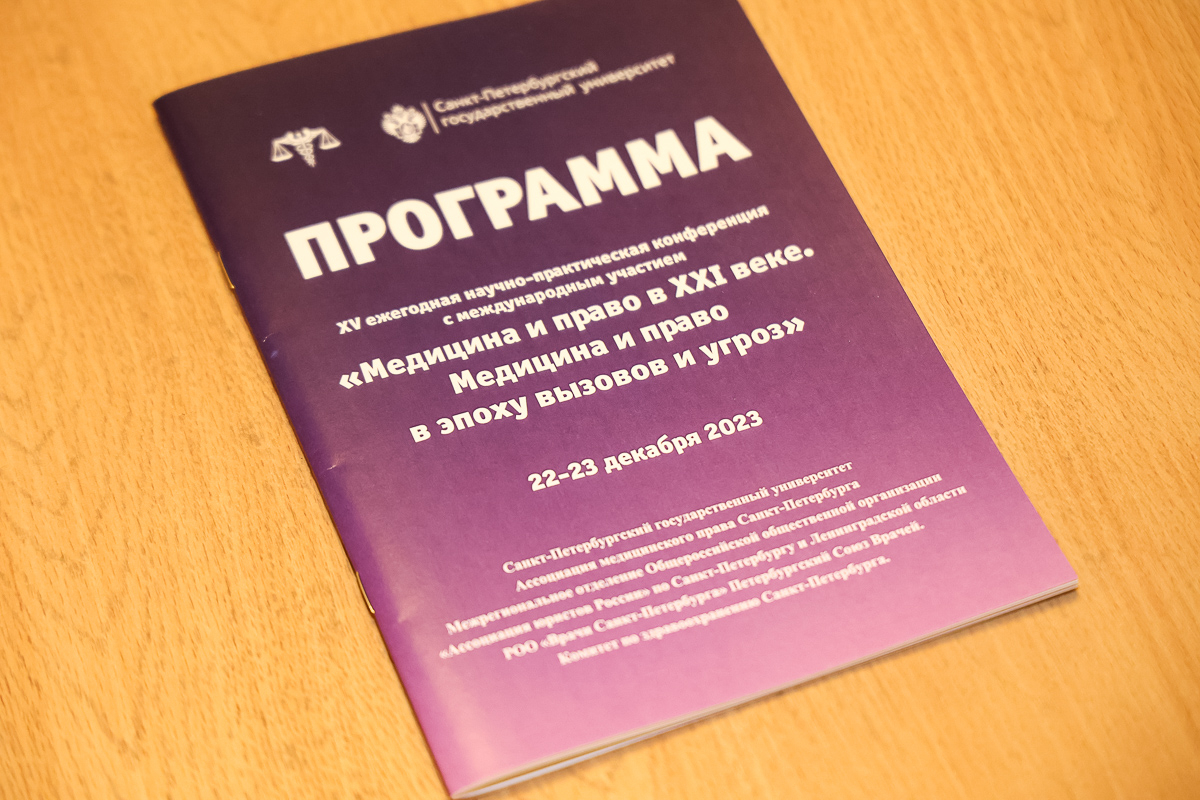Experts from St Petersburg University: ‘Each year, Russians spend almost 2 trillion roubles on medicines’
St Petersburg University has held the 15th annual scientific and practical conference "Medicine and law in the 21st century". It brought together more than 300 participants. Among them were: lawyers, doctors, representatives from the healthcare sector, researchers, lecturers, and students from Russia, Italy, China, Thailand, and India.
Opening the conference, Marina Lavrikova, Senior Vice-Rector for Academic Activities at St Petersburg University, said that the overarching priority of the state policy in science and education is specific solutions and applied developments. The University is a leading scientific and expert centre and meets these requirements: ‘The University’s strength is diversity. It gives a synergistic effect. Practical results are vital today, especially in such socially significant areas as medicine and healthcare.’
This year, the conference "Medicine and law in the 21st century" was held at St Petersburg University for the 15th time.
The medical community is facing legal issues every day, and law underpins the entire sphere of healthcare from admitting a patient in a hospital for inpatient or outpatient care and signing an informed consent to drug provision and actions or inactions of a doctor, said Andrey Sarana, Director of the Institute of Medicine at St Petersburg University.
This year, the main topic of expert discussion was drug safety, legal and organisational issues of ensuring drug safety. According to Professor Igor Akulin, Head of the Health Management and Medical Law Department at St Petersburg University, pharmaceuticals are developing incredibly quickly. In the short time since the invention of the first antibiotics aspirin and penicillin thousands of drugs have appeared on the market.
Today, in Russia there are 54 packages of drugs per person per year. Last year, Russians spent 1.76 trillion roubles in pharmacies. Pharmaceutical care today accounts for 70% to 95% of all medical prescriptions, and 68% of outpatients provide their own drugs.
The drug market has grown by 10% in recent years. According to experts, this requires solving several problems. First, it is necessary to stop the uncontrolled use of drugs and drug misuse, since it negatively affects the health of patients and leads to drug resistance. Secondly, it is important to regulate price increases and avoid a monopoly on the production of drugs. Thirdly, the market requires careful monitoring of the quality and safety of drugs. Thus, according to the World Health Organization, 1 in 10 drugs and medical products in low- and middle-income countries are counterfeit or falsified.
Experts also discussed whether providing patients with medicines is the responsibility of the state. According to lawyers, law does not directly mention mandatory drug provision. It is stated that drug provision is part of medical care. According to the current legislation, treatment and the right to health care are ensured by the production and sale of high-quality, affordable and safe drugs and the provision of affordable and high-quality medical care.
In 2022, the expenses of the Federal Compulsory Medical Insurance Fund on medicines increased to 500 billion roubles. Moreover, many groups of people and the list of diseases for which medicines are given to patients free of charge are stipulated in the current legislation. However, outpatient medication use still remains uncontrolled, and finding and purchasing drugs rests on the shoulders of patients.
According to scientists, it is important to develop a way to recognise drug provision as part of the right to health care and medical care, including for outpatient treatment. Participants reported that some countries had successfully developed the system of drug insurance. If a patient receives insurance, they may be eligible for reimbursement of expenses for the purchase of medications prescribed by a doctor. Compensation can reach 100%.
In Russia, patients are provided with free medications for HIV, diabetes, oncology, multiple sclerosis, and orphan (rare) diseases.
During the conference, doctors spoke about the problems in relation to solving drug safety issues in hospitals and medical centres. Thus, medical institutions face a number of risks associated with the circulation and use of drugs and related to interaction with government agencies, other organisations, including distributors and patients. At the medical institutions, there are risks such as inadequate prescriptions and improper storage of drugs. According to doctors, it is extremely important today to create a safe medical environment, i.e. to ensure the adequacy of the prescription of drugs, to monitor their compatibility, and to evaluate the effectiveness of the therapy, compliance with the requirements for the storage of drugs, circulation of drugs, and managing documentation.


